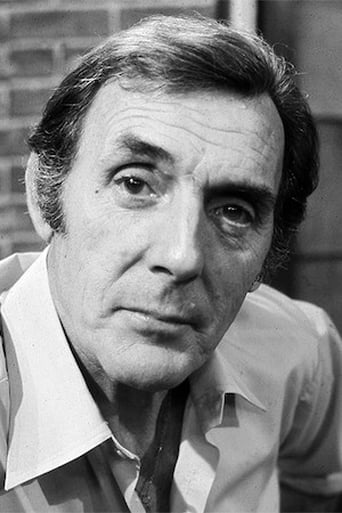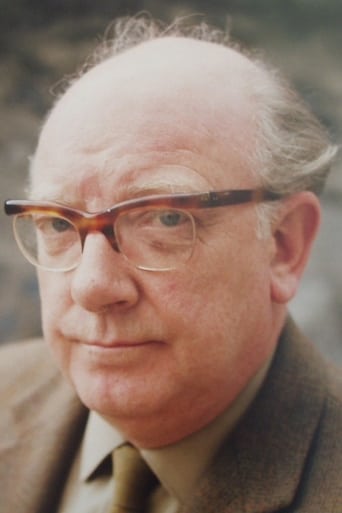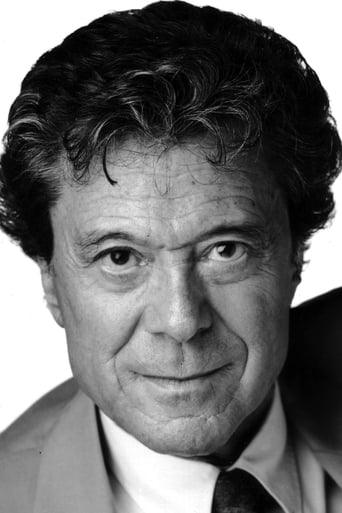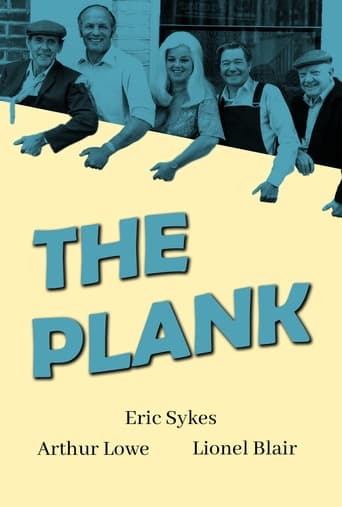
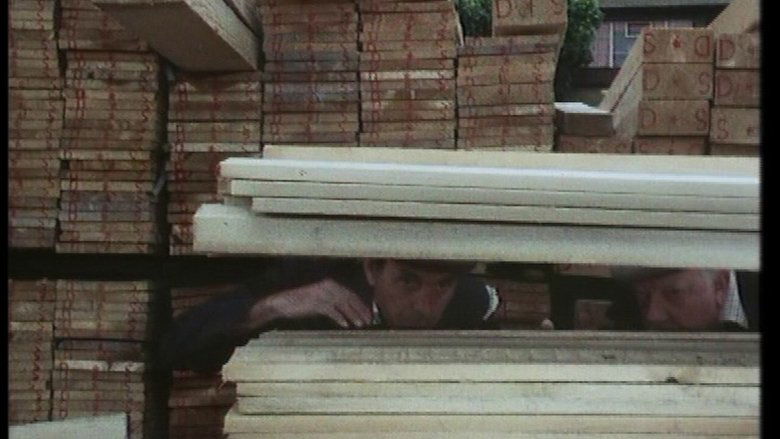
The Plank (1979)
Classic short British comedy, full of stars, about two workmen delivering planks to a building site. This is done with music and a sort of "wordless dialogue" which consists of a few mumbled sounds to convey the appropriate emotion. TV remake of the 1967 short.
Watch Trailer
Cast


Reviews
Yawn. Poorly Filmed Snooze Fest.
How sad is this?
Story: It's very simple but honestly that is fine.
It is an exhilarating, distressing, funny and profound film, with one of the more memorable film scores in years,
With a poll coming up on IMDb's Classic Film board for the best movies of 1979,I started looking round for titles to view. Initially looking from its running time like an episode of Sykes,I was surprised to stumble on a short (almost) Silent movie,written/directed and starring Eric Sykes! Which led to me picking up the plank.The plot:As they get set to continue their work,two construction workers discover that one of their building planks has disappeared.Looking round for it,the workers discover that it has been taken by kids,who are now using it as a sea-saw.Not wanting to interrupt their play,the workers decide to just go and buy a new one,but soon find themselves on a sea-saw of chaos.View on the film:Bringing the movie out later in a "Silent" version,the TV cuts showing the pull between Silent cinema and TV Comedy that the film is stuck in.Offering slight whispers of Alan Braden's jazzy score,the playful mood is stamped on by an unrelenting fake laugh tracks,which yelps like a pack of dogs even during the set-up of gags. Deciding to go Silent due to hearing troubles,director Eric Sykes reveals a natural flare for Silent Comedy,with smooth tracking shots making the rubbery slap- stick Comedy hit its mark. Keeping the screenplay free and easy,Sykes packs the short running time with a cast of Comedy legends walking the plank from Harry H. Corbett to Diana Dors! Despite each just being given small roles,the cast make their sightings a delight to see,with Arthur Lowe being wonderfully stuffy as the fellow workman who walks the plank.
Once in every lifetime a show comes along like The Plank.A remake of the 1967 version, this again, has a large collection of the funniest people of their day.A story of a wayward plank and who it meets on it's travels.Watch it if you want to know what true comedy is...or should I say was.Gone are the days of Fawlty Towers, Dad's Army and the Two Ronnies.Comedy now is not the same. Watching The Plank transports the viewer back to the days of high comedy. Simple yet effective.The universal language of laughter.The Plank will forever live in history as a tribute to many who started TV comedy.
The Plank is a straight-forward slapstick short. To me, it summarizes the old-style slapstick of the old silent movies in a single movie. This means that some of the humor feels pretty outdated, like getting a cake in the face. But that is as it should in this movie. It is still very enjoyable. It has a wonderfully minimalistic theme, the transportation of a plank, executed with nice under-acting by Eric Sykes and Arthur Lowe.So don't expect the British humor from the same times by Monty Python/Feldman/Allen/Goodies/Atkinson. Watch it as a tribute to the old classics. Sykes and Lowe do it the old way, and they do it very well. I laugh at the references to the origins as much as the jokes as such. I could live without the laughter track though.Apart from Sykes and Lowe, the cliché old-times policeman (Jimmy Edwards) is wonderful, with mustache and all! Also, some scenes driving around with the plank are very good. As so often, the more subtle the humor, the better, and that is the case here too. The "delivery man" (Charlie Drake) is usually too crude (but necessary to deliver that side on the classic humor) as well as the painter, while the photographer, the milkman and the van drivers are funnier.Chaplin and Laurel&Hardy are (mostly) funny even today, and this movie builds on their work. It is the 20's in color.
The main appeal of this short is probably the cameos from a certain strata of 60s and 70s British comedy that support leads Eric Sykes and Arthur Lowe - Lionel Blair, Harry H. Corbett, Bernard Cribbins, Frankie Howerd, Reg Varney, Joanna Lumley, the guy from GEORGE AND MILDRED etc. Unfortunately, (with the exception of the great Charles Hawtrey) this is the comedy against which I've always defined my own loves - e.g. MONTY PYTHON'S FLYING CIRCUS, REGINALD PERRIN, WHATEVER HAPPENED TO THE LIKELY LADS, FAWLTY TOWERS etc. - so there isn't much enjoyment for me here. But it's rare that popular TV stars experiment with the riches of short silent comedy, so I gave it a go.The first barrier to pleasure is not the profusion of performers I have never found funny, but the aggressive laughter track stuck on, telling me how truly hilarious what I'm watching is, when it clearly, bewilderingly, isn't. The gags are so obvious, and are set up so far in advance, and are executed as precisely as you expected, that not only can you not understand why everybody's enjoying themselves; but you get the feeling that you are not watching a comedy, but a lecture in the mechanics of comedy theorems.The plot concerns two builders, Sykes and Lowe, who are laying the wood foundations of a new house, only to find one plank stolen by children to make a see-saw. They head off to the plankyard (or whatever it's called) in their clapped out old car, and the rest of the film details their chaotic, socially disruptive, attempts to bring it back to the house.There is some abstract pleasure in seeing a plot dominated not by bewildered comics, but a piece of wood, which probably dramatises some Marxist gubbins about the commodity fetish and the alienation of the worker from his labour. There is an intriguing contrast between the very British cast and their brand of saucy seaside humour, and the very abstract Anywhere-ville that frames their adventures, a new housing estate under construction and some generalsised suburbs.This, and the pleasing, bouncy music, give the film a HULOT-esque feel, but there is none of Tati's complex struggle between individual and environment (or hilarity). This rush of new building and the profusion of labourers give some sense of 70s Britain, its anonymity and dehumanisation, while the ultimate circularity of the plot calls into question the very progress (eg economic) that allows the film's content.While the leads are sympathetic in their passivity, the jokes and slapstick are so old, corny and uninventive, stolen from hundreds of better 20s comedies. Men get splattered by paint, hit by the plank, are run into a pond etc. The one genuinely funny sequence is when the great Wilfred Hyde-White tries to cross a busy road and his walking-stick is broken.


